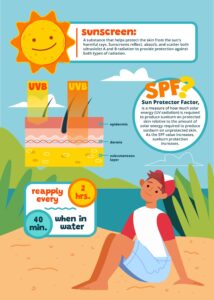Introduction:
Losing weight is a great achievement, but sometimes it can lead to loose skin, which many people find frustrating. Loose skin happens when your body loses fat faster than your skin can shrink. However, there are ways to reduce the risk of loose skin during and after your weight loss journey. By following some simple tips and making healthy choices, you can help your skin stay firm and tight. This guide will explore easy and effective methods to avoid loose skin as you lose weight.
Understanding Loose Skin
 Loose skin after weight loss happens because your skin stretches as you gain weight and then doesn’t always snap back when you lose it. This is due to the loss of elasticity in the skin. Skin is made up of several layers, with the middle layer containing collagen and elastin, which give it its firmness and elasticity. When you gain weight, your skin stretches to accommodate the increased body mass. However, when you lose weight, especially rapidly, your skin may not have enough time to shrink back, resulting in loose skin.
Loose skin after weight loss happens because your skin stretches as you gain weight and then doesn’t always snap back when you lose it. This is due to the loss of elasticity in the skin. Skin is made up of several layers, with the middle layer containing collagen and elastin, which give it its firmness and elasticity. When you gain weight, your skin stretches to accommodate the increased body mass. However, when you lose weight, especially rapidly, your skin may not have enough time to shrink back, resulting in loose skin.
Factors Contributing to Loose Skin
- Age: As you get older, your skin loses elasticity due to a decrease in collagen production, making it more difficult for your skin to bounce back after weight loss.
- Amount of Weight Lost: The more weight you lose, the more likely you are to experience loose skin. Losing weight too quickly can also increase this risk.
- Duration of Being Overweight: If you’ve been overweight for a long time, your skin has been stretched for a longer period, making it harder for it to return to its original shape.
- Genetics: Your genes play a role in how elastic your skin is, and therefore how well it can adjust to changes in your body size.
- Sun Exposure: Overexposure to the sun can damage the skin’s elasticity over time.
- Smoking: Smoking reduces skin elasticity by damaging collagen and elastin fibers.
Strategies to Minimize Loose Skin
- Gradual Weight Loss: Aim to lose weight at a steady pace. This gives your skin more time to adjust and shrink along with your body.
- Strength Training: Building muscle through strength training can help fill out loose skin and improve your body’s overall appearance.
- Hydration: Keeping your skin hydrated by drinking plenty of water can improve its elasticity and help it recover from weight loss.
- Healthy Diet: Eating a balanced diet rich in vitamins and nutrients supports skin health. Focus on foods high in vitamins C and E, which are known to support collagen production.
- Skin Care: Regularly moisturize your skin to keep it supple. Some creams and lotions contain ingredients that can help improve skin elasticity.
- Stay Active: Regular physical activity boosts blood flow, which can help improve skin health and elasticity.
Medical and Surgical Options
For those who have lost a significant amount of weight and are left with a lot of loose skin, medical and surgical options are available. These include:
- Body Contouring Surgery: This surgery removes excess skin and fat to improve the shape of the underlying tissue.
- Non-Surgical Treatments: Procedures like laser therapy, radiofrequency treatments, and ultrasound can stimulate collagen production and improve skin elasticity.
Gradual Weight Loss is Key to Avoid Loose Skin
 One of the most effective ways to prevent loose skin after weight loss is to lose weight gradually. Rapid weight loss often doesn’t give your skin enough time to adjust, resulting in sagging or loose skin. Here’s why taking it slow can make a big difference:
One of the most effective ways to prevent loose skin after weight loss is to lose weight gradually. Rapid weight loss often doesn’t give your skin enough time to adjust, resulting in sagging or loose skin. Here’s why taking it slow can make a big difference:
- Allows Skin to Adjust: Gradual weight loss gives your skin the necessary time to shrink and adjust to your new body size. This helps maintain its elasticity and reduces the chances of ending up with loose skin.
- Promotes Muscle Retention: When you lose weight slowly, you’re more likely to retain muscle mass. Muscle helps to fill out your skin and provides a firmer, more toned appearance.
- Healthier for Your Body: Slow and steady weight loss is generally healthier and more sustainable. It allows your body to adapt to changes without the shock that can come from rapid weight loss.
- Improves Long-Term Success: Gradual weight loss is often associated with better long-term success in maintaining your new weight. This is because it encourages the development of healthy habits that are more likely to stick with you for life.
Tips for Achieving Gradual Weight Loss
- Set Realistic Goals: Aim to lose 1-2 pounds per week. This is a safe and sustainable rate that promotes healthy weight loss and skin adjustment.
- Balanced Diet: Focus on a balanced diet that includes a variety of nutrients. Avoid crash diets or extreme calorie restrictions that can lead to rapid weight loss.
- Regular Exercise: Incorporate both cardio and strength training exercises into your routine. Strength training, in particular, helps build muscle, which supports your skin and gives it a firmer appearance.
- Stay Hydrated: Drinking plenty of water keeps your skin hydrated and improves its elasticity, making it more resilient during weight loss.
- Monitor Your Progress: Keep track of your weight loss journey to ensure you’re losing weight at a healthy pace. Adjust your diet and exercise plan as needed to maintain gradual progress.
Stay Hydrated
Hydration plays a vital role in maintaining skin elasticity. Drinking plenty of water keeps your skin hydrated, plump, and more elastic. Aim to drink at least 8-10 glasses of water per day. Proper hydration benefits your skin and aids in overall health and weight loss efforts.
Build Muscle with Strength Training
 Incorporating strength training into your fitness routine can significantly help in preventing loose skin. Building muscle mass can fill out the space under your skin, making it appear firmer and tighter. Focus on exercises that target all major muscle groups, including your arms, legs, chest, and back. Aim for at least two strength training sessions per week, gradually increasing the intensity and resistance as you progress.
Incorporating strength training into your fitness routine can significantly help in preventing loose skin. Building muscle mass can fill out the space under your skin, making it appear firmer and tighter. Focus on exercises that target all major muscle groups, including your arms, legs, chest, and back. Aim for at least two strength training sessions per week, gradually increasing the intensity and resistance as you progress.
Focus on Nutrition
 Main food groups macronutrients vector illustration
Main food groups macronutrients vector illustration
Proper nutrition plays a crucial role in maintaining healthy skin, especially when you’re losing weight. Eating a balanced diet rich in essential nutrients can improve your skin’s elasticity, help it adjust to your changing body, and prevent loose skin. Here are some key nutritional tips to keep in mind:
Protein-Rich Foods: Protein is essential for maintaining muscle mass, which supports your skin and helps it stay firm. Include lean proteins like chicken, fish, beans, and legumes in your diet.
Healthy Fats: Healthy fats, such as those found in avocados, nuts, seeds, and olive oil, are vital for skin health. They help keep your skin hydrated and improve its elasticity.
Vitamins and Minerals: Vitamins and minerals, especially vitamins C, E, and A, as well as zinc and selenium, are important for skin health. They support collagen production and protect your skin from damage.
- Vitamin C: Found in citrus fruits, strawberries, bell peppers, and broccoli, vitamin C helps with collagen production and skin repair.
- Vitamin E: Nuts, seeds, and green leafy vegetables are good sources of vitamin E, which protects your skin from oxidative stress.
- Vitamin A: Sweet potatoes, carrots, and spinach are rich in vitamin A, which supports skin cell production and repair.
- Zinc: Zinc, found in foods like beef, chickpeas, and pumpkin seeds, helps with skin healing and regeneration.
- Selenium: Selenium-rich foods, such as Brazil nuts, fish, and eggs, protect your skin from damage and support its elasticity.
Hydration: Drinking plenty of water is essential for maintaining skin elasticity and overall health. Aim to drink at least 8 glasses of water a day to keep your skin hydrated.
Antioxidant-Rich Foods: Antioxidants protect your skin from damage caused by free radicals. Include plenty of fruits and vegetables in your diet, such as berries, spinach, and tomatoes, which are rich in antioxidants.
Collagen Supplements: Some people find that taking collagen supplements helps improve their skin’s elasticity. Collagen is a protein that gives your skin its structure, and supplements can provide an extra boost.
Tips for Incorporating Nutrition into Your Diet
- Plan Balanced Meals: Ensure each meal contains a balance of protein, healthy fats, and a variety of fruits and vegetables.
- Snack Wisely: Choose nutrient-dense snacks like nuts, fruits, and yogurt instead of processed foods.
- Stay Consistent: Make healthy eating a consistent part of your lifestyle rather than a temporary diet.
- Cook at Home: Prepare meals at home to have better control over the ingredients and ensure you’re eating nutritious foods.
Incorporate Collagen-Boosting Foods and Supplements

Collagen is a vital protein that provides structure and elasticity to your skin. As you lose weight, boosting your collagen levels can help maintain skin firmness and reduce the risk of loose skin. Here are some effective ways to incorporate collagen-boosting foods and supplements into your diet:
Collagen-Boosting Foods
Bone Broth: Bone broth is rich in collagen and other beneficial nutrients. Regularly consuming bone broth can support skin health and elasticity.
Chicken: Chicken contains connective tissues that are a good source of collagen. Adding chicken to your meals can help boost your collagen intake.
Fish and Shellfish: Fish, especially the skin, is packed with collagen. Incorporate fish like salmon, tuna, and shellfish into your diet to promote skin health.
Eggs: Egg whites contain proline, an amino acid that is crucial for collagen production. Including eggs in your diet can support collagen synthesis.
Citrus Fruits: Citrus fruits like oranges, lemons, and grapefruits are high in vitamin C, which is essential for collagen production. Vitamin C helps in stabilizing the collagen molecules.
Berries: Berries, such as strawberries, blueberries, and raspberries, are rich in antioxidants and vitamin C, both of which support collagen production and protect the skin from damage.
Leafy Greens: Vegetables like spinach, kale, and Swiss chard contain chlorophyll, which has been shown to increase the precursor to collagen in the skin.
Nuts and Seeds: Nuts and seeds, such as almonds and sunflower seeds, provide vitamin E and zinc, which are important for skin health and collagen production.
Garlic: Garlic contains sulfur, which is necessary for collagen production. It also provides taurine and lipoic acid, which help rebuild damaged collagen fibers.
Collagen Supplements
Hydrolyzed Collagen: This form of collagen is broken down into smaller, easily absorbable peptides. It can be found in powders, capsules, and liquids and is often derived from bovine, marine, or chicken sources.
Collagen Peptides: Collagen peptides are another form of hydrolyzed collagen that is easily absorbed by the body. They can be added to smoothies, coffee, or other beverages.
Gelatin: Gelatin is a cooked form of collagen and can be used in cooking and baking. It can help boost your collagen intake while adding a protein boost to your diet.
Tips for Incorporating Collagen into Your Diet
- Add Collagen Powder to Drinks: Mix collagen powder into your morning coffee, tea, or smoothie for an easy collagen boost.
- Cook with Bone Broth: Use bone broth as a base for soups, stews, and sauces to increase your collagen intake.
- Eat a Variety of Protein-Rich Foods: Incorporate a mix of collagen-rich foods like chicken, fish, and eggs into your meals.
- Include Vitamin C-Rich Foods: Pair collagen-rich foods with vitamin C-rich fruits and vegetables to enhance collagen synthesis.
- Take Collagen Supplements: If you find it challenging to get enough collagen from food alone, consider taking a daily collagen supplement.
Practice Good Skin Care
Avoid Sun Exposure
 Daily Skin Care Routine
Daily Skin Care Routine
Cleanse Gently: Use a mild cleanser to remove dirt and oil without stripping your skin of its natural moisture. Avoid harsh soaps that can dry out your skin.
Moisturize Regularly: Apply a good quality moisturizer daily to keep your skin hydrated. Moisturizers containing hyaluronic acid, glycerin, and ceramides are particularly effective in maintaining skin hydration.
Exfoliate Weekly: Exfoliating helps remove dead skin cells and promotes cell turnover. Use a gentle exfoliant once or twice a week to keep your skin smooth and healthy.
Sun Protection: Protect your skin from UV damage by applying a broad-spectrum sunscreen with at least SPF 30 daily, even on cloudy days. Sun exposure can damage collagen and elastin, making your skin less elastic. Taking care of your skin is essential, especially when losing weight.
Proper skin care can help maintain your skin’s elasticity and reduce the chances of developing loose skin. Here are some effective skin care practices to keep your skin healthy and firm
 Excessive sun exposure can damage the skin and reduce its elasticity. Protect your skin from harmful UV rays by wearing sunscreen with at least SPF 30, even on cloudy days. Cover up with clothing and wear a hat when spending extended periods outdoors. Avoid tanning beds, as they can also cause significant damage to your skin.
Excessive sun exposure can damage the skin and reduce its elasticity. Protect your skin from harmful UV rays by wearing sunscreen with at least SPF 30, even on cloudy days. Cover up with clothing and wear a hat when spending extended periods outdoors. Avoid tanning beds, as they can also cause significant damage to your skin.
Stay Patient and Consistent
It’s important to remember that skin elasticity and firmness won’t improve overnight. Staying consistent with your healthy habits, including hydration, nutrition, exercise, and skin care, is essential for long-term results. Patience is key; your skin needs time to adjust and regenerate.
Consider Professional Treatments

If loose skin persists despite your best efforts, you might want to explore professional treatments. Several non-surgical and surgical options are available to help tighten loose skin:
Non-Surgical Treatments
Radiofrequency Therapy: This treatment uses radiofrequency energy to heat the skin and stimulate collagen production, leading to tighter skin over time.
Laser Therapy: Laser treatments can boost collagen production and improve skin texture and firmness.
Ultrasound Therapy: This method uses ultrasound waves to penetrate deep into the skin, promoting collagen production and tightening.
Surgical Options
Tummy Tuck (Abdominoplasty): This procedure removes excess skin and tightens the abdominal muscles, resulting in a firmer midsection.
Body Lift: A body lift targets multiple areas, such as the abdomen, thighs, and buttocks, to remove excess skin and contour the body.
Arm Lift (Brachioplasty): This surgery removes loose skin from the upper arms, creating a more toned appearance.
Psychological Aspect of Lose Skin
Losing a significant amount of weight is a tremendous achievement, but dealing with loose skin afterward can be emotionally challenging. The psychological impact of loose skin is an important aspect to consider in your weight loss journey. Here are some ways to address and cope with the psychological effects:
Understanding Your Emotions
Body Image Issues: Loose skin can affect how you see yourself and may lead to negative body image. It’s normal to feel disappointed or self-conscious about your appearance after weight loss.
Self-Esteem: Your self-esteem might take a hit if you feel uncomfortable with your loose skin. You may feel less confident in social situations or avoid activities you used to enjoy.
Frustration and Discouragement: After working hard to lose weight, dealing with loose skin can be frustrating and discouraging. You might feel that your efforts haven’t fully paid off.
Coping Strategies
Focus on the Positive: Remind yourself of the health benefits and achievements of your weight loss. Celebrate how far you’ve come and the positive changes you’ve made to your lifestyle.
Seek Support: Talk to friends, family, or a support group about your feelings. Sharing your experiences with others who understand can be comforting and encouraging.
Professional Help: Consider speaking with a therapist or counselor who can help you work through body image issues and develop coping strategies. Professional guidance can be very beneficial in dealing with emotional challenges.
Set Realistic Expectations: Understand that some loose skin is a natural part of significant weight loss. Setting realistic expectations about your body can help reduce feelings of disappointment.
Embrace Your Journey: Your body tells the story of your hard work and determination. Embrace the journey you’ve been on and recognize the strength and resilience it took to get there.
Practical Tips for Boosting Confidence
Dress Comfortably: Wear clothes that make you feel good about yourself. Sometimes, well-fitting clothing can make a big difference in how you feel about your appearance.
Stay Active: Regular exercise can boost your mood and improve your body image. Activities like yoga or strength training can help you feel stronger and more in control of your body.
Skin Care Routine: Taking care of your skin can make you feel better about your appearance. Establish a routine that makes you feel pampered and cared for.
Mindfulness and Meditation: Practices like mindfulness and meditation can help you develop a more positive relationship with your body. These techniques can reduce stress and improve your overall mental well-being.
Consider Medical Options: If loose skin is significantly affecting your quality of life, consult with a healthcare professional about medical or surgical options. Procedures like body contouring surgery can help address loose skin.
Embrace Your New Body
 Finally, embracing your new body and focusing on the positives is crucial. Celebrate the health benefits you’ve gained from losing weight, such as improved energy levels, reduced risk of chronic diseases, and enhanced overall well-being. Loose skin is a minor trade-off for the significant improvements you’ve made to your health.
Finally, embracing your new body and focusing on the positives is crucial. Celebrate the health benefits you’ve gained from losing weight, such as improved energy levels, reduced risk of chronic diseases, and enhanced overall well-being. Loose skin is a minor trade-off for the significant improvements you’ve made to your health.
Conclusion
Preventing and reducing loose skin after losing weight involves several steps. Losing weight slowly, staying hydrated, doing strength training, and eating a healthy diet are key. Eating foods and taking supplements that boost collagen, taking good care of your skin, and protecting it from the sun are also important. Loose skin can be frustrating, but it’s important to stay patient, consistent, and positive. Remember, losing weight is a big achievement, and loose skin is just a small part of your amazing transformation.
FAQS
 1. Why does loose skin occur after weight loss?
1. Why does loose skin occur after weight loss?
Loose skin occurs when the skin loses its elasticity and cannot shrink back to its original size after significant weight loss. Factors such as age, genetics, the amount of weight lost, and the speed at which the weight was lost all contribute to the likelihood of developing loose skin.
2. How can I prevent loose skin during weight loss?
To prevent loose skin, aim for gradual weight loss of 1-2 pounds per week. Staying hydrated, eating a balanced diet rich in vitamins and proteins, and incorporating strength training exercises into your routine can also help maintain skin elasticity.
3. Does hydration help in preventing loose skin?
Yes, staying hydrated is crucial for maintaining skin elasticity. Drinking plenty of water keeps your skin hydrated and plump, which can help prevent sagging as you lose weight.
4. Can building muscle help with loose skin?
Absolutely. Strength training builds muscle mass, which can fill out the space under your skin, making it appear firmer and tighter. Aim for at least two strength training sessions per week targeting all major muscle groups.
5. Are there specific foods that can help prevent loose skin?
Yes, consuming foods rich in vitamins C and E, such as citrus fruits, nuts, and leafy greens, can support collagen production and skin health. Collagen-boosting foods like bone broth, fish, and gelatin are also beneficial.
6. Do collagen supplements work for tightening loose skin?
Collagen supplements can help support skin elasticity and may be beneficial in preventing loose skin. They are available in various forms, including powders and capsules.
7. How important is skincare in preventing loose skin?
Skincare is very important. Regularly moisturizing your skin can help maintain its elasticity. Using a moisturizer rich in vitamins E and C, and exfoliating gently once or twice a week, can improve skin health and appearance.
8. Can sun exposure affect skin elasticity?
Yes, excessive sun exposure can damage the skin and reduce its elasticity. Protect your skin by wearing sunscreen with at least SPF 30, covering up with clothing, and avoiding tanning beds.
9. What are some non-surgical treatments for loose skin?
Non-surgical treatments for loose skin include radiofrequency therapy, laser therapy, and ultrasound therapy. These treatments stimulate collagen production and can improve skin firmness over time.
10. When should I consider surgical options for loose skin?
Surgical options, such as a tummy tuck, body lift, or arm lift, may be considered if loose skin persists despite your best efforts. Consult with a qualified plastic surgeon to discuss the best options for your situation.

